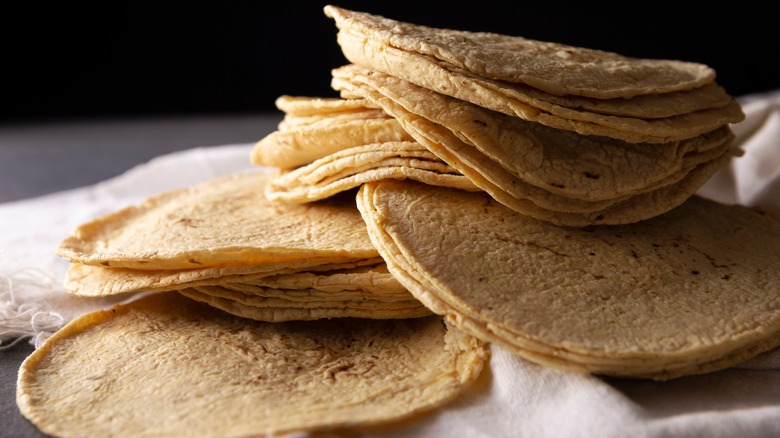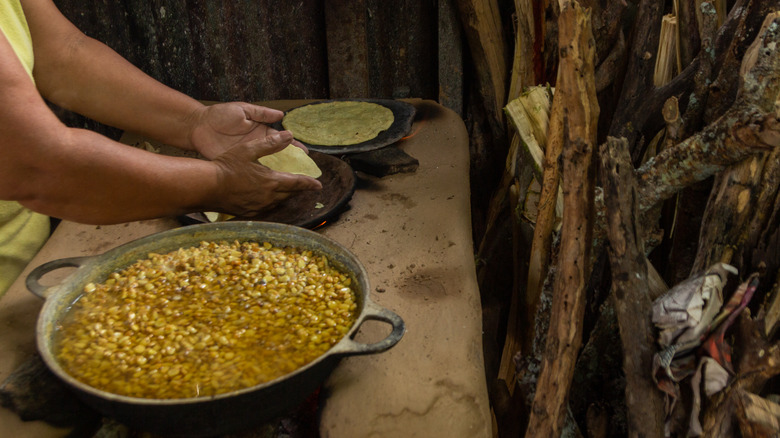The Traditional Way To Make Tortillas
Unfortunately for fans of homemade Mexican food, the more traditional way of making tortillas is top-heavy in the labor department. The ingredients — whole corn and calcium hydroxide, or slaked lime — are not your standard grocery aisle finds, but the nixtamalization of corn for making masa is a centuries-old process. And even if we aren't going to kneel in front of a metate for the full experience of making tortillas from scratch, understanding the process will surely increase your appreciation of your next taco (per The Mija Chronicals).
The recipe is seemingly simple: boil water, add whole corn and slaked lime (calcium hydroxide). Let the mixture boil for 30 minutes to two hours, and the sit for eight hours. Cooking the corn in alkaline water breaks down the outer layer of the kernel. Next, the softened corn is washed repeatedly to remove the outer skin. Interestingly, cooking corn in this way greatly alters its nutritional value. The New Gastronome explains that boiling corn with lime makes the grain's protein, vitamins, and minerals, namely vitamin A, B6, and niacin available to the human body.
What makes a tortilla really traditional?
Originally the Mayans used wood ashes to make their masa (nixtamal is a Nahuatl word that combines nixtli, or ashes, and tamalli, or dough). Lupix shares that tamales nejos are still made with this ancient recipe. Present day, many tortillas are made from nixtamalized corn flour, like Maseca, but if you've ever eaten one made from nixtamalized whole corn masa, you know they are a far cry from the real thing. Fortunately, chefs such as Israel Alvarez Molina, the former chef de cuisine at Pujol and now owner of Maiiz Nixtamal in British Columbia, are championing nixtamal. Alvarez sees his business in part as an educational center "to provide education and resources on the importance of nixtamalization, corn, and culture, actively working towards sharing this practice with all people" (Maiiz Nixtamal).
Likewise, chef Jamie Mammano, owner of Tortilleria Mi Niña, holds to the old ways to produce tortillas: Grinding his nixtamal on lava rock stones that are hand sharpened twice a day. Mammano describes the process as" authentic, tasty, natural, and aromatic."
Matt Daiz and Carlos Macias from urban molino For All Things Good started with the seemingly simple goal to "find a good tortilla," which grew into a nixtamalization obsession. Diaz tells Edible Manhattan of his desire to reconnect people to "an 8,000-year-old culinary tradition that also happens to be on the brink of extinction."

